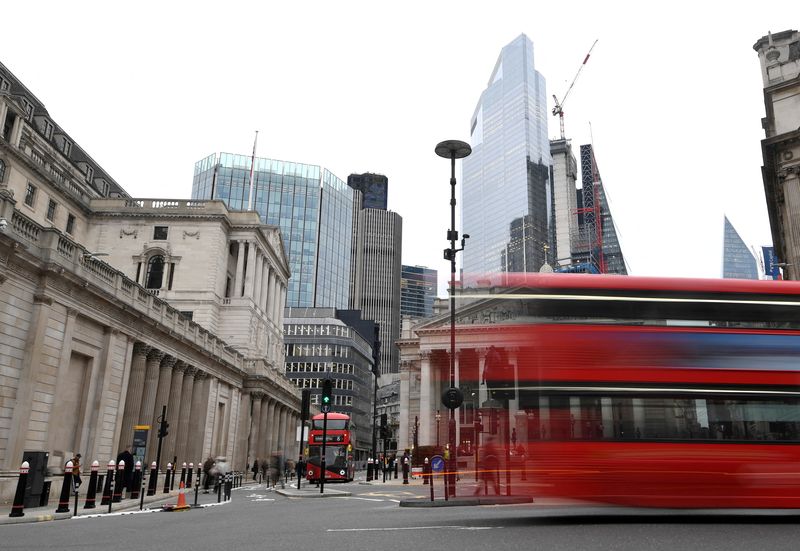It's a central bank-heavy week ahead, with the U.S. Federal Reserve expected to deliver its second straight half-point rate hike (at least) to bring inflation under control.
Britain and Sweden, too, will likely lift interest rates again, while Switzerland may be getting ready to join the rate-hike club. In contrast, the Bank of Japan should confirm its ultra-dovish stance remains solid.
Here's a look at the week ahead from Ira Iosebashvili in New York, Kevin Buckland in Tokyo and Sujata Rao, Julien Ponthus and Dhara Ranasinghe in London.
1/ GO BIG
It's time to go big or go home in the battle to curb inflation. Wednesday will likely see the Federal Reserve hike interest rates by another 50 basis points (bps) and Friday's red-hot U.S. inflation data has stoked worries about a more aggressive move.
How confident the Fed remains in squashing the highest inflation in decades without tipping the U.S. economy into a recession will come under scrutiny.
The jobs market is holding up well and retail sales data on Wednesday could show how consumers are doing as borrowing costs rise. Analysts expect a 0.2% monthly increase in retail sales for May. One big retailer is cutting its margin outlook.
Also watch the Fed's projections for rate moves in the so-called "dot plot." Unexpectedly aggressive rate-hike projections could pile pressure on U.S. Treasuries, with 10-year yields back above 3%.
GRAPHIC: The Fed's balance sheet (https://fingfx.thomsonreuters.com/gfx/mkt/klvykowlevg/Pasted%20image%201654727036511.png)
2/ NO, DON'T GO (AT ALL)
There's little doubt that the Bank of Japan will stick to its big stimulus guns on Friday, with Governor Haruhiko Kuroda in recent days repeatedly re-committing to ultra-easy monetary policy.
But pressure to change tack is growing. Being the G-10's lone dove means constantly pushing back against a global tide of rising yields. Japan's 10-year bond yield is regularly bumping against the BOJ's tolerance ceiling, 25 bps north of 0%.
Pinning it there is costly and one casualty is the yen. Widening yield differentials have sent the currency to multi-decade lows.
Japan's imported energy has become expensive, crunching consumers and businesses at a sensitive time as crucial upper house elections loom this summer. Kuroda didn't help matters by suggesting households were becoming more tolerant of rising prices, forcing a rare apology.
GRAPHIC: Yen heads for 135 per dollar (https://fingfx.thomsonreuters.com/gfx/mkt/jnpwezmyjpw/Pasted%20image%201654787299543.png)
3/ CRUEL SUMMER
Near-10% inflation, the worst cost-of-living squeeze in decades and planned labour strikes threaten a summer of discontent in Britain. The OECD predicts zero growth next year, the weakest performance for any G20 economy - except Russia.
But on June 16, the Bank of England will likely raise rates for the fifth time since December. Data on Monday showed Britain's economy unexpectedly shrank in April. Jobs figures are due on Tuesday. As a reminder, Q1 joblessness touched 48-year lows at 3.7%. But adjusted for inflation, pay was down 2% on year-earlier levels, the biggest fall since 2013.
Meanwhile Prime Minister Boris Johnson, his authority shaken by a vote of confidence that revealed the degree of discontent with his leadership within his ruling Conservative Party, is forging on with "fiscal firepower" pledges and plans to amend some post-Brexit rules on trade with Northern Ireland. The former could exacerbate inflation, while the latter is likely to stoke tensions with the European Union.
GRAPHIC: UK pay (https://fingfx.thomsonreuters.com/gfx/mkt/lbpgndakxvq/Pasted%20image%201654764973737.png)
4/ INFLATION BUG
Switzerland has caught the inflation bug, having seen prices rise in May by the most in nearly 14 years. It could mean the days of deeply negative rates are numbered.
The Swiss National Bank may not make a change to its -0.75% interest rate - the world's lowest - at its Thursday meeting. But price pressures and the prospect of the ECB hiking rates in July are persuading some rate-setters to change their dovish stance.
Franc strength has dampened inflation somewhat and the SNB has toned down franc selling. Still, it may join the rate-hike club soon, having watched such hitherto-dovish peers as Sweden's Riksbank make policy U-turns.
Having upped rates in April, the Riksbank may do so again on Friday, with some chance of a 50 bps move.
GRAPHIC: Swiss catch the inflation bug (https://fingfx.thomsonreuters.com/gfx/mkt/xmpjoxmaovr/chTHEME0906.PNG)
5/ ENSEMBLE?
French President Emmanuel Macron faces a tough fight to win an absolute majority in parliament that would allow him to govern with a free hand after a strong showing by a new left-wing alliance in Sunday's first-round election.
Much has changed since his 58% win against far-right candidate Marine Le Pen on April 24.
Initial estimates by Elabe put the hard-left veteran Jean-Luc Melenchon's NUPES bloc neck-and-neck with Macron's Ensemble (Together) alliance in the first round, with 26.20% and 25.8% respectively.
Falling short of an absolute majority would be a big setback, forcing Macron to broaden his alliance or face the uncertainty of governing without a majority.

The broader the alliance, the more complicated deal-making, and dictating policy decisions, becomes. Some amount of political risk would kick in as investors reconsider the premium paid for French assets.
GRAPHIC: French stocks versus the broader European market (https://fingfx.thomsonreuters.com/gfx/mkt/dwvkrnwwopm/FRTHEME0906.PNG)